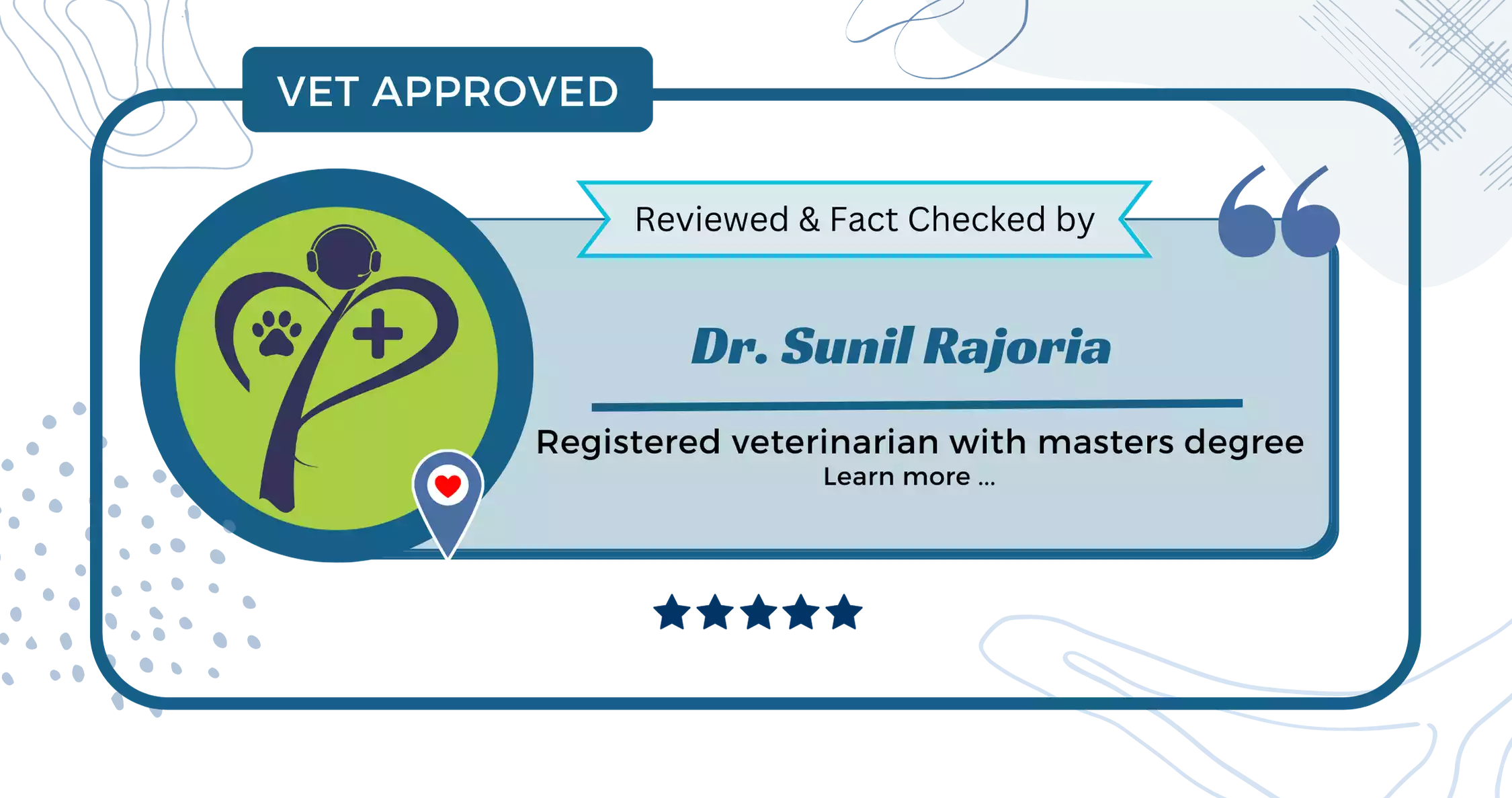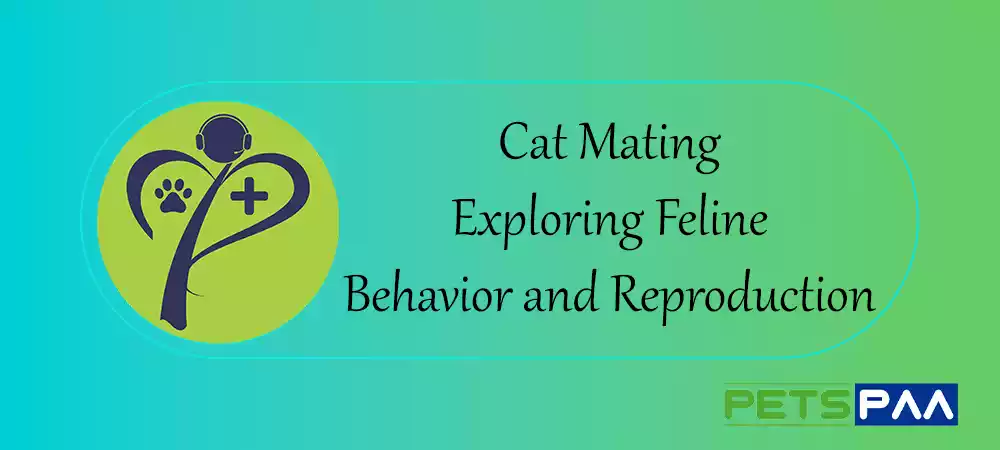Can Cats Eat Cheese? You Need to Know First
Have you ever thought about whether can cats eat cheese? Many pet owners ask this question and with good reason. Understanding which diet suits your animal is vital for their lasting wellness and happiness. So, can cats have a piece of cheese now and then? Let’s look into the answer to this surprisingly prevalent query.
Table of Contents
Can Cats Eat Cheese?
Cats are infamous for being fussy eaters. While they are obligate carnivores and must eat meat, many cat owners wonder if they can give their feline pals a cheese treat. Is it true that cats can eat cheese? To find out, let’s delve into the interesting topic of feline nutrition.
Is Cheese Good for Cats?
Cheese, with its rich and creamy texture, is irresistible. Regarding cats, however, cheese should be ingested in moderation. While it is not inherently poisonous to cats, it is crucial to remember that feline digestive systems are limited.
Why Do Cats Like Cheese?
The fragrance and taste of cheese are naturally appealing to cats. The pungent odor and substantial fat content make it appealing to them. Furthermore, cheese can be a high-value treat, making it an effective tool for training or bonding with your feline buddy.

Benefits of Feeding Cats Cheese
It can be a rich protein, calcium, and vital fatty acid source. These nutrients are necessary for various body activities, including bone health, muscle development, and a lustrous coat. Here are the main benefits:
- Protein Source: Cheese is necessary for cats to create and maintain muscular mass. Protein also helps to maintain numerous biological systems and improves overall health.
- Calcium Intake: Calcium is essential for bone health and development. Calcium levels must be adequate in kittens and older cats to maintain healthy bones and prevent osteoporosis.
- Essential Fatty Acids: Cheese contains vital fatty acids like omega-3 and omega-6, which benefit skin and coat health. These fatty acids promote a shiny, healthy coat, lowering the danger of dry skin and dull fur.
- High-Value Treat: Cheese can be a high-value treat for cats during training sessions or as a special incentive. Its powerful odour and taste appeal to cats, which helps to encourage positive behaviour and enhance the link between the cat and the owner.
- Enrichment and Mental Stimulation: Including cheese in a puzzle or treat-dispensing toy can provide cats with mental stimulation and enrichment. It stimulates their natural hunting instincts while also encouraging physical exercise.
Cheese Nutritional Value?
The nutritional characteristics of various cheeses vary. The specific makeup of cheese varies depending on the kind, although it is often high in protein and fat. It is critical to select cheese with low salt content and avoid extra spices or flavourings that can harm cats.
Cheese Type | Protein (g/100g) | Fat (g/100g) | Carbohydrates (g/100g) | Calcium (mg/100g) | Phosphorus (mg/100g) | Sodium (mg/100g) | Vitamin A (IU/100g) | Vitamin B12 (mcg/100g) | Vitamin D (IU/100g) |
Cheddar | 24 | 33 | 1 | 721 | 519 | 621 | 1050 | 0.96 | 9 |
Mozzarella | 22 | 22 | 2 | 505 | 299 | 373 | 237 | 0.38 | 0 |
Swiss | 27 | 29 | 5 | 978 | 541 | 153 | 1473 | 0.96 | 2 |
Blue Cheese | 21 | 28 | 2 | 528 | 387 | 1395 | 2493 | 0.6 | 0 |
Feta | 14 | 21 | 4 | 493 | 165 | 1116 | 372 | 1.24 | 0 |
Cottage Cheese | 11 | 4 | 3 | 83 | 85 | 364 | 99 | 0.48 | 0 |
Parmesan | 38 | 28 | 0 | 1256 | 490 | 1609 | 1994 | 1.41 | 0 |
Please remember that these are estimates and can vary based on the brand or variety of cheese. When feeding cheese to your cat, always verify the nutritional information on the container for accurate values.
Can Kittens Eat Cheese?
Cheese should be cautiously added because kittens’ digestive systems are still developing. While tiny amounts of cheese can be given as a treat occasionally, their specialist kitten diet must be prioritized for proper growth and nutrition.
Can Cats Eat Cheese Like a Treat?
While cats can occasionally enjoy cheese as a treat, it should not replace a balanced and nutritionally complete diet. Moderation is vital, and before feeding cheese as a reward, consider your cat’s total dietary needs.
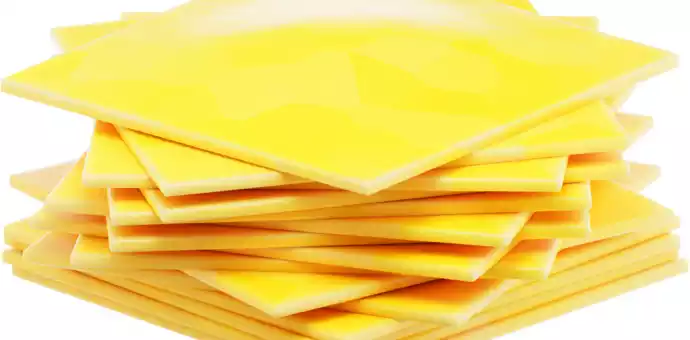
Can Cats Eat Cheese? Is It Bad for Them?
While cats can eat cheese in moderation, there are times when it can be harmful to their health. Understanding when cheese harms cats can help you make more informed decisions about including it in your diet.
When is Cheese Bad for Cats?
Avoid cheese if your cat has lactose sensitivity or a dairy allergy. Furthermore, if your cat has a history of pancreatitis or digestive disorders, avoiding cheese is advisable to avoid flare-ups.
What Are Cheeses Bad for Cats?
Some cheeses, such as blue cheese or cheeses with herbs or spices added, can harm cats due to excessive sodium or hazardous component levels. When giving cheese to your feline buddy, consider simple, low-sodium cheeses with no additives.
Can Cats Eat Cooked Cheese? Is It Bad?
Avoid cooked cheese, such as melted cheese on pizza or macaroni and cheese. Cooking can change the makeup of the cheese, making it more difficult for cats to digest and potentially causing gastric discomfort.
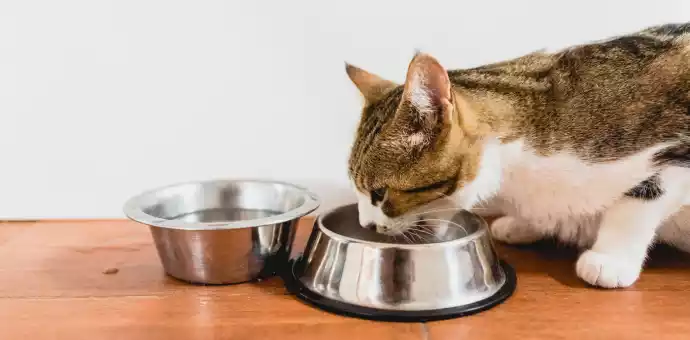
Drawbacks of Cheese Feeding in Cats
Lactose Intolerance
Many adult cats have a lactose intolerance, meaning that the enzyme lactase is absent in them, essential for metabolizing lactose, the carbohydrate existing in milk and dairy products.
Cheese, like a dairy product, contains lactose. Eating of dairy products in cats with lactose intolerance may result in digestive problems, such as frequent loose motions, emesis, or experiencing a swollen abdomen.
High Fat Content
Cheese is often heavy in fat, leading to weight gain and obesity if consumed excessively. Excessive weight in felines may lead to various health issues, which include diabetes, and challenges related to the bones and muscles, causing a decline in the overall well-being. Limiting the cheese provided to cats is critical to avoid excessive fat consumption.
Sodium Content
Certain forms of cheese, particularly processed or flavored variants, can have a high salt level. Excess salt consumption can strain a cat’s kidneys and contribute to high blood pressure or cardiovascular disorders. To avoid sodium-related difficulties, use low-sodium cheese choices or serve cheese in moderation.
Nutritional Imbalance
Although cheese provides certain health advantages, it must not be utilized as an alternative to a properly balanced diet primarily consisting of meat tailored specifically for cats.
Cheese is low in numerous crucial elements cats require, including taurine, a vital amino acid. Over time, relying too heavily on cheese as a food source can lead to vitamin imbalances and inadequacies.
Digestive Upset
Even in cats who accept cheese well, eating too much or rapidly can cause stomach discomfort. Cats have sensitive digestive systems, and eating too much cheese can cause gastrointestinal problems such as diarrhea or vomiting. Serving cheese in small, controlled doses and monitoring the cat’s behavior is critical.
Sensitivities and allergies
Cats, like people, can acquire food allergies or sensitivities, including cheese. Some cats may develop allergic reactions such as itching, skin irritation, or gastrointestinal problems when exposed to cheese. If your cat exhibits negative responses after eating cheese, you should stop feeding it and consult a veterinarian.
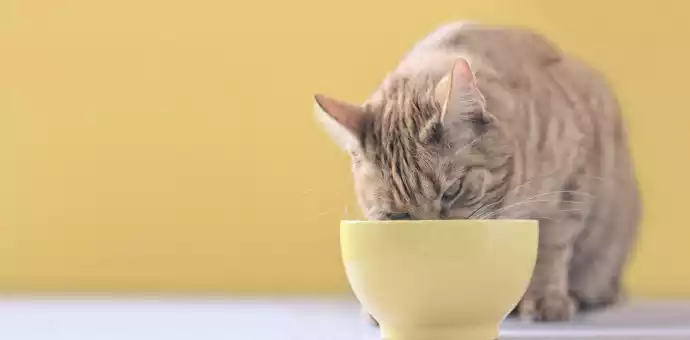
Cats with Dairy Intolerance and Allergy
Like some humans, cats can be lactose intolerant or allergic to dairy products. It is critical to distinguish between the two and recognize the indicators of cat dairy-related disorders.
Lactose Intolerance in All Cats?
Although not every cat has lactose intolerance, numerous adult cats diminish their ability to create lactase, the enzyme accountable for breaking down lactose, the milk sugar. Giving milk or milk-based items, including cheese, to many cats may cause stomach distress.
What are the Symptoms of Lactose Intolerance in Cats?
Lactose (Milk sugar) intolerance among felines may lead to digestive issues, including upset stomach, vomition, or excessive gas. If your cat exhibits these symptoms after consuming cheese or other dairy products, it will likely have lactose digestion problems.
Cheese Classification: Good vs. Bad
Let’s look at several types of cheese and their compatibility with cats. Remember that moderation and selecting the correct type of cheese are essential.
Can Cats Eat Cream Cheese?
Cream cheese can be fed to cats in tiny amounts due to its soft and spreadable nature. However, make sure to use low-fat cream cheese and avoid any extra tastes or seasonings.
Can Cats Eat Macaroni and Cheese?
Mac and cheese, normally made with processed cheese, pasta, and other ingredients, is unsuitable for cats. It is an undesirable choice for our feline friends due to the excessive fat content, sodium, and probable additives.
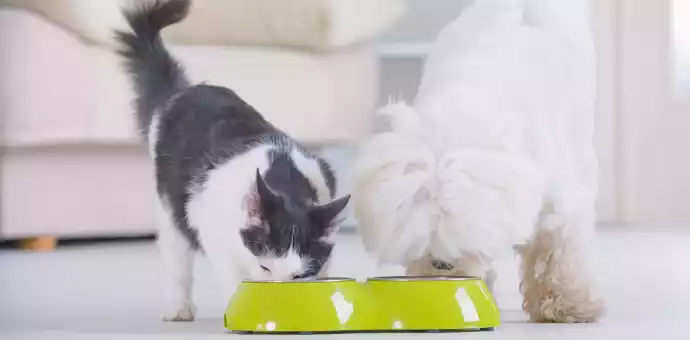
Can Cats Eat Cottage Cheese?
The higher the standard of the cuisine, the greater the chance there is a possibility that you’ll obtain a successful result in terms of health and well-being. It can occasionally be a pleasure, but keep portion sizes in mind.
Can Cats Eat String Cheese?
In moderation, cats can be given string cheese made from mozzarella. However, make sure that the cheese is unflavored or spiced.
Can Cats Eat Parmesan Cheese?
Parmesan cheese, known for its strong flavor and firm texture, can be a flavor enhancer in cat food. Nonetheless, it is advisable to have it prudently due to the high sodium level.
Can Cats Eat Cheese Sticks?
Cheese strings, often produced from processed cheese, are unsuitable for cats. These goods frequently contain scents, colourings, and preservatives that can harm feline health.
Can Cats Eat Feta Cheese?
Feta cheese contains a lot of sodium and fat, making it undesirable for cats. It is advised to avoid giving your feline buddy feta cheese.
Can Cats Eat Goat Cheese?
Cats can occasionally eat goat cheese in little amounts. However, ensure the cheese is unflavored and has no additional flavors or seasonings.
Can Cats Eat Provolone Cheese?
Like other high-fat cheeses, Provolone cheese should be avoided or given sparingly to cats. Excessive fat content can cause digestion problems and weight gain.
Can Cats Eat Babybel Cheese?
With its waxy outside covering, Babybel cheese can be given in modest amounts to cats. However, removing the wax before presenting it to your kitty companion is critical.
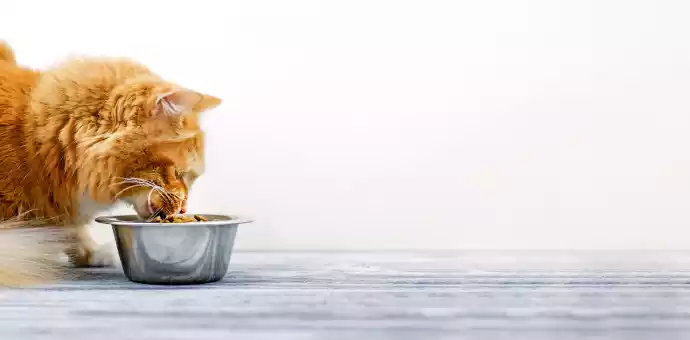
Should I Call the Vet if My Cat Has Eaten Cheese?
In most situations, eating a small amount of cheese will not cause substantial harm to cats. However, if your cat Eats a considerable amount of cheese or exhibits any indications of distress, it’s always advisable to seek assistance from your veterinarian.
How to Feed Your Cat Cheese Safely?
It is critical to consider your cat’s safety and well-being when feeding cheese to them. Here are some suggestions for safely introducing cheese into your cat’s diet:
- Moderation: Feed cheese in moderation. It should supplement your cat’s diet rather than a replacement for balanced and nutritionally complete cat chow.
- Plain and Low-Sodium: Choose plain cheeses without added flavors, spices, or harmful additives. Choose low-sodium types to avoid excessive salt consumption, which can harm cats.
- Small Portions: Serve cheese in small, bite-sized slices. This makes chewing and digesting easier for cats. Large bits of cheese can be a choking hazard.
- Monitor Digestive Reactions: Keep an eye on your cat’s digestive reactions after feeding them cheese. If they have digestive problems like diarrhea or vomiting, stop feeding cheese and consult a veterinarian.
- Introduce Gradually: Gradually introduce cheese into your cat’s diet: When first introducing cheese into your cat’s diet, start with a modest amount and monitor their reaction. Some cats may have sensitivities or allergies to dairy products, so approach them cautiously.
- No Cooked or Processed Cheese: Avoid giving cooked or processed cheese, such as melted cheese, on pizza or in macaroni and cheese. Cooking can change the makeup of the cheese, making it more difficult for cats to digest. Many processed cheese products contain additives that can be toxic to cats.
- Consider Individual Cat’s Needs: Each cat is unique, and their dietary requirements may vary. Remember any pre-existing medical issues or dietary restrictions when feeding your cat cheese. Consult a veterinarian for specific guidance.
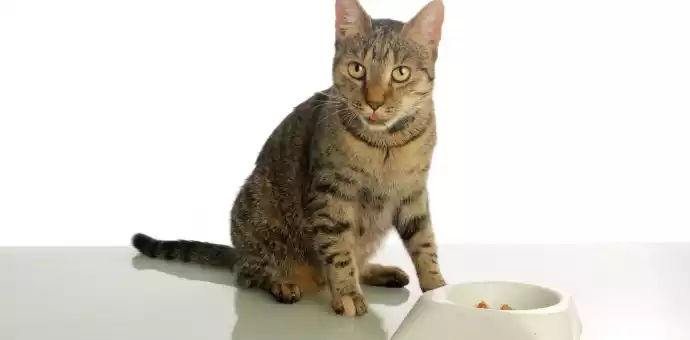
Cat-Friendly Recipe with Cheese?
If you wish to include cheese in a homemade cat-friendly meal, be sure the other components are also safe and nutritionally balanced for cats. See your veterinarian or a feline nutritionist for expert advice on preparing homemade meals for your cat.
Here are two homemade dishes that include cheese and are appropriate for cats:
Tuna Cheesy Treats
Ingredients:
- 1 can tuna (drained in water)
- 1 (lightly beaten) egg
- 1/2 cup shredded cheese (cheddar or mozzarella preferred)
Instructions:
- Heat up the oven at 350 degrees Fahrenheit (175°Celsius) and cover a baking sheet using paper liner.
- Combine the drained tuna, beaten egg, and shredded cheese in a mixing bowl.
- Combine until every single ingredient is completely mixed.
- Shape the mixture into compact round shapes and arrange them on the ready baking pan.
- Cook the pastries for 12-15 minutes or until solid and somewhat brown.
Allow the cookies to cool completely before presenting them as a cheesy treat to your cat.
Stuffed Pumpkin with Chicken and Cheese:
Ingredients:
- 1 small pumpkin (about 2-3 pounds)
- 1 cup cooked (shredded) chicken
- 1/2 cup grated cheese (Swiss or Monterey Jack preferred)
Instructions:
- Heat up the oven at 375 degrees Fahrenheit at 190 degrees Celsius).
- Remove the pumpkin’s top and scoop out the seeds and threads from the inside.
- Combine the cooked shredded chicken and grated cheese in a mixing basin.
- Stuff the pumpkin securely with the chicken and cheese mixture.
- Cover the stuffed pumpkin with aluminum foil and place it on a baking pan.
- Bake for 1 hour or until the pumpkin flesh is tender and easily penetrated with a fork.
- Allow the pumpkin to cool completely before serving.
Scoop out tiny amounts of pumpkin flesh, along with the chicken and cheese stuffing, and serve it to your cat as a tasty and nutritious treat.
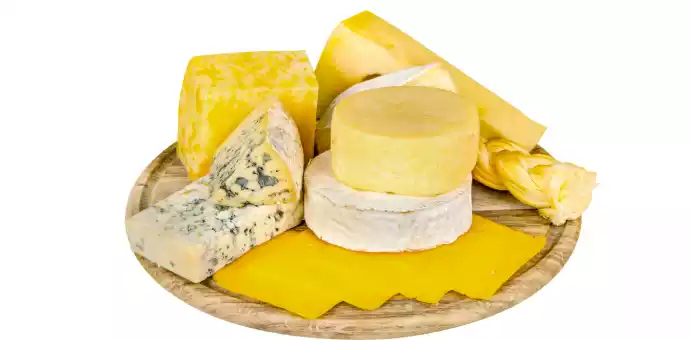
Are Cats Allowed Other Dairy Products?
Aside from cheese, cat owners frequently inquire about other dairy items. Let’s look into their suitability for cats.
Can Cats Eat Ice Cream?
Like other dairy products, frozen desserts might result in gastrointestinal issues among felines owing to the lactose concentration. It is advised to avoid giving your kitty pal ice cream.
Can Cats Have Milk?
In contrast to common belief, felines do not need milk as an element of their nutrition. Many adult cats are lactose intolerant and can have digestive problems if given milk. It is best to supply fresh water for your cat’s hydration needs.
Can Cats Have Cheesecake?
Dessert, frequently prepared with mascarpone, sweetener, and various elements, is not an acceptable cure for domestic cats. It is unsuitable for their digestive systems because of the high sugar content and probable additives.
Key Takeaways
- Cats can eat cheese in moderation but should not replace a balanced, meat-based diet.
- Cheese can be an excellent training or bonding treat for your cat.
- Because different types of cheese have different nutritional profiles, choose low-sodium and plain variants.
- Because cats may be lactose intolerant, watching for signs of digestive discomfort after consuming cheese is critical.
- Some cats may have dairy allergies or sensitivities, including cheese.
- Cheese should be served in tiny amounts as a pleasure rather than as a normal meal.
- Feeding cheeses with additional flavors, spices, or dangerous cat additives is not good.
- Certain types of cheese, such as blue cheese or those heavy in sodium, should be avoided.
- Cooked cheese and processed cheese products should be avoided or eaten in moderation.
- If your cat swallows a lot of cheese or exhibits any signs of distress, consult a veterinarian.
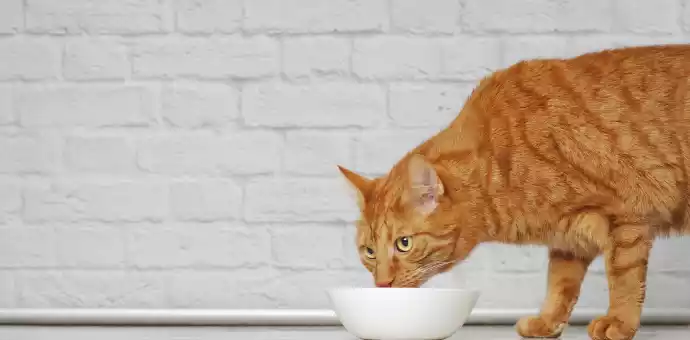
Conclusion
Finally, while cats can eat cheese, it should be provided in moderation and with careful consideration of their nutritional requirements. Cheese can be a tempting treat for cats, but it’s crucial to choose the proper type of cheese and avoid any negative reactions.
Cats who are lactose intolerant or allergic to dairy should avoid cheese entirely. Cheese should never be used instead of a nutritionally balanced food designed exclusively for cats.
If you have any worries about giving cheese to your cat or need assistance with their general nutrition, see a veterinarian who can provide personalized counsel for the well-being of your feline companion.
PetsPaa is an informal organization of certified, experienced, and socially responsible veterinarians who aim to improve the lives of pets in various ways. In a word, we are the non-formal organization Pets & Vets.
FAQs (Frequently Asked Questions)
Yes, it can be safe for cats to eat cheese in moderation. However, some cats may be lactose intolerant or have sensitivities to dairy products. Introducing cheese slowly and observing for any digestive upset or adverse reactions is important. Choose low-sodium and plain cheeses without added spices or flavorings.
Cat-friendly cheeses include plain, low-fat varieties such as cheddar, mozzarella, or Swiss cheese. These types of cheese are generally easier for cats to digest and have lower sodium content. Always offer cheese in small portions as an occasional treat, and monitor your cat for any adverse reactions.
Blue cheese is not recommended for cats. It has a higher sodium content and can contain moulds or additives that may harm cats. Blue cheese’s strong flavor and potential allergenic properties make it unsuitable for feline consumption. It’s best to avoid feeding blue cheese to cats.
Cats should not be given cheese puffs or other similar processed cheese snacks. These snacks are typically high in fat, sodium, and artificial additives. Feeding cheese puffs to cats can lead to digestive upset, obesity, or other health issues. Stick to cat-friendly cheese options in moderation.
Cheese pizza should be avoided for cats. Pizza crust often contains yeast, onions, or garlic, which are toxic to cats. Cheese pizza’s high fat and sodium content can also lead to digestive upset and other health complications. It’s best to keep cheese pizza away from cats.
No, cats should not eat cheese balls. Cheese balls are usually highly processed snacks with excessive fat, sodium, and artificial additives. Feeding cheese balls to cats can lead to digestive issues, obesity, or other health problems. Stick to cat-friendly cheese treats in controlled portions.


